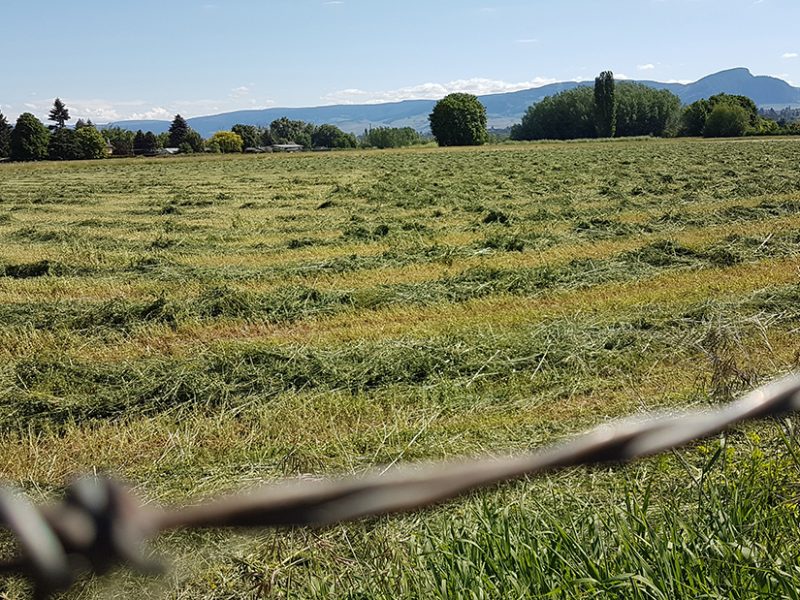The province is asking North Okanagan producers affected by Western yellowstriped armyworm to help prevent spreading the pest.
BC Ministry of Agriculture staff in Kelowna reported that a load of cut hay infested with armyworms was sold and shipped from a farm in the North Okanagan.
The ministry did not provide details on where the report of infested hay originated or its destination.
Farms in Enderby, Armstrong and Spallumcheen were infested with the pest last season and again this May.
Enderby farmer Paul Eichinger said this year’s infestation was less than last year.
He noted fewer armyworms emerged from a second hatching in July and those numbers dwindled further after a heavy downpour.
Eichinger’s farm is one of several being monitored for the pest. Traps and regular visits from a ministry entomologist are keeping tabs on the infestation.
With the armyworm currently identified only in the North Okanagan, the BC Ministry of Agriculture advises producers to limit the movement of infested hay, produce, farm equipment and trucks from the region to other parts of the province. A tip sheet has been distributed to hay producers in the region as well as provincial livestock associations and the Certified Organic Associations of BC.
Eichinger had not seen the ministry’s tip sheet, but said his practices are consistent with its recommendations. He ensures his equipment is clean and hay shipments do not occur immediately after harvest.
The province’s tip sheet urges farmers,
- do not move or sell hay immediately after baling, as armyworm larvae take refuge under swaths or bales;
- store bales for one to three weeks prior to transport to allow worms to move out or die;
- inspect bales to ensure there are no worms before transporting or selling;
- inspect purchased hay for worms prior to unloading;
- clean hay equipment, farm trucks and other equipment with an air or water spray to prevent worms from travelling between farms;
- inspect equipment coming onto your property for worms.


